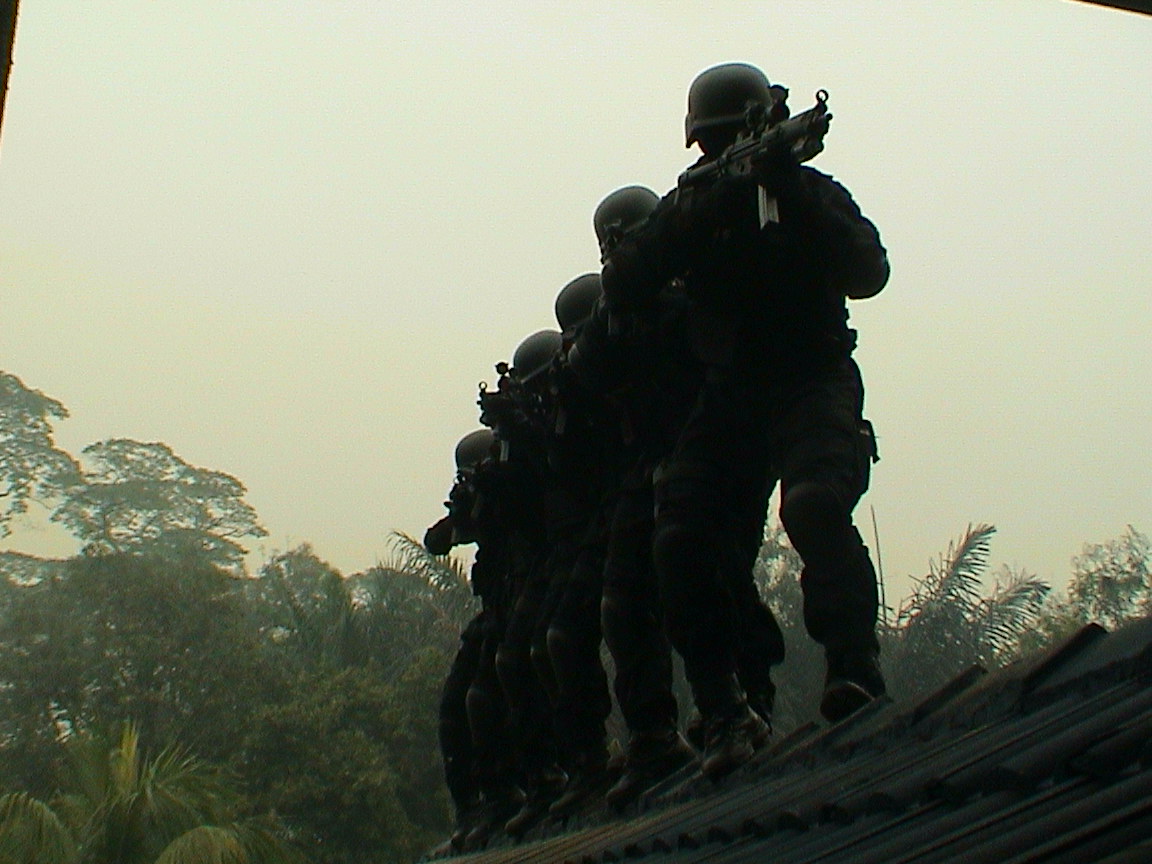By: Felix Manig

Countering and responding to the kind of terrorism which today plagues much of the Middle East, parts of Asia, and to a lesser extent Western states have become a massive undertaking and prime concern for policy-makers. The security of the individual is a basic human right which governments are entitled to protect; governments are obliged to develop legitimate measures to ensure their citizens’ safety and mitigate the threat emanating from terrorist groups by bringing such perpetrators to justice. While the actions of terrorist violence negate the fundamentals of human rights, it is especially challenging for the states, related institutions and private actors countering and seeking to prevent terrorism, to operate under the rule of law.
However, since the launch of the so-called Global War on Terror post 9/11, the responses of security and intelligence communities to combat terrorism have raised serious concerns about the abuse of human rights and the rule of law. Some of the most drastic examples of disregarding legal and practical safeguards manifested themselves in the abuse of Iraqi detainees by American soldiers in Baghdad’s Abu Ghraib detention centre. This had a considerable shock value globally and culminated in finding that prisoners in other facilities in Afghanistan or Guantanamo Bay suffered from similar abuse as well.[1] Other states deport suspects to countries where they face risks of torture or extra-judicial killing, thereby violating the legal obligation of non-refoulment.[2] The use of exceptional and military courts to trial suspects has undermined the independence of the established judiciary, and those individuals highlighting these practices, such as human rights defenders, journalists, or ordinary citizens, have been threatened with repressive measures. In sum, these developments have had and continue to have a negative impact on human rights, the rule of law, good governance, and the effectiveness of countering terrorism around the world.
The Strife Series on Counterterrorism and Human Rights seeks to highlight the delicate balance actors must maintain when developing and implementing counterterrorism strategies. Counterterrorism policies are likely to remain priority concerns for lawmakers and relevant agencies alike in 2017, following yet another year of deadly terrorist attacks throughout the Middle East, Europe, and South-East Asia. In the U.S., President-elect Donald Trump’s statements to resume ‘enhanced interrogation techniques’ such as waterboarding, a method considered to be torture by a wide range of legal experts and human rights organisations, should spell concern. French lawmakers recently voted in favour of extending its state of emergency laws for the fifth time, granting police special powers of search, seizure, and detention. In Bangladesh, counterterrorism operations of the government are increasingly used to crack down on political dissent. The authors in this series offer important insights into some of the philosophical, practical, and case-specific contexts of counterterrorism and its relationship to human rights.
First, Lenoy Barkai poses the fundamental question of why liberal democracies fall into the trap of illegitimate practices when countering terrorism. She argues that the preventive logic states have developed to counter-terrorism does not necessitate human rights violations. Rather, violations should be understood as the ongoing norm-contestation inherent to the identity formation of liberal democracies.
In the second article, Felix Manig examines the reason why states with a similar threat perception of Islamist terrorism have developed starkly contrasting counterterrorism legislation and strategies. He evaluates research which finds that France and the United Kingdom - both Western liberal democracies - have approached counterterrorism differently due to the institutional characteristics of their respective security agencies and the normative context in which they operate.
The third piece of the series, also authored by Felix Manig, highlights some of the less visible but equally worrisome counterterrorism measures imposed by governments through mass surveillance, data collection, and their effect on the right to privacy. Felix examines the problems around proportionate responses, i.e. the intrusive steps governments have taken around the world and reviews the implications this has for everyone using digital communications technology.
In the fourth article, Silvia Sclafani evaluates the implications of the state of emergency laws in France, which has recently been extended until mid-2017. She highlights how security agencies have utilised their extended powers to conduct large-scale arrests and searches and how these practices have a disproportionate effect on citizens with migrant backgrounds. At the same time, she argues that the effect of the laws on security remain questionable.
Finally, Athul Menath illustrates in the fifth piece how counterterrorism policies can be misused by governments wishing to silence political opposition or dissent. More specifically, he highlights how historical political volatility and an escalation in jihadi violence in Bangladesh have correlated with an increasing crackdown on opposition parties and fundamental freedoms.
Happy reading!
Felix is a postgraduate in International Relations at King’s College London. He focuses on conflict resolution strategies, political violence, and human rights. Outside of academia, he is Series Editor at Strife and advocates for human rights defenders across the world at Peace Brigades International. Twitter: @felix_manig
Notes:
[1] Brown, Michelle. “‘Setting the Conditions’ for Abu Ghraib: The Prison Nation Abroad.” American Quarterly 57, no. 3 (2005): 973–97.
[2] Foley, Frank. “Reforming Counterterrorism: Institutions and Organizational Routines in Britain and France.” Security Studies 18, no. 3 (September 18, 2009): 435–78.
Image Source: https://www.flickr.com/photos/calinjurylawyer/22082530215



